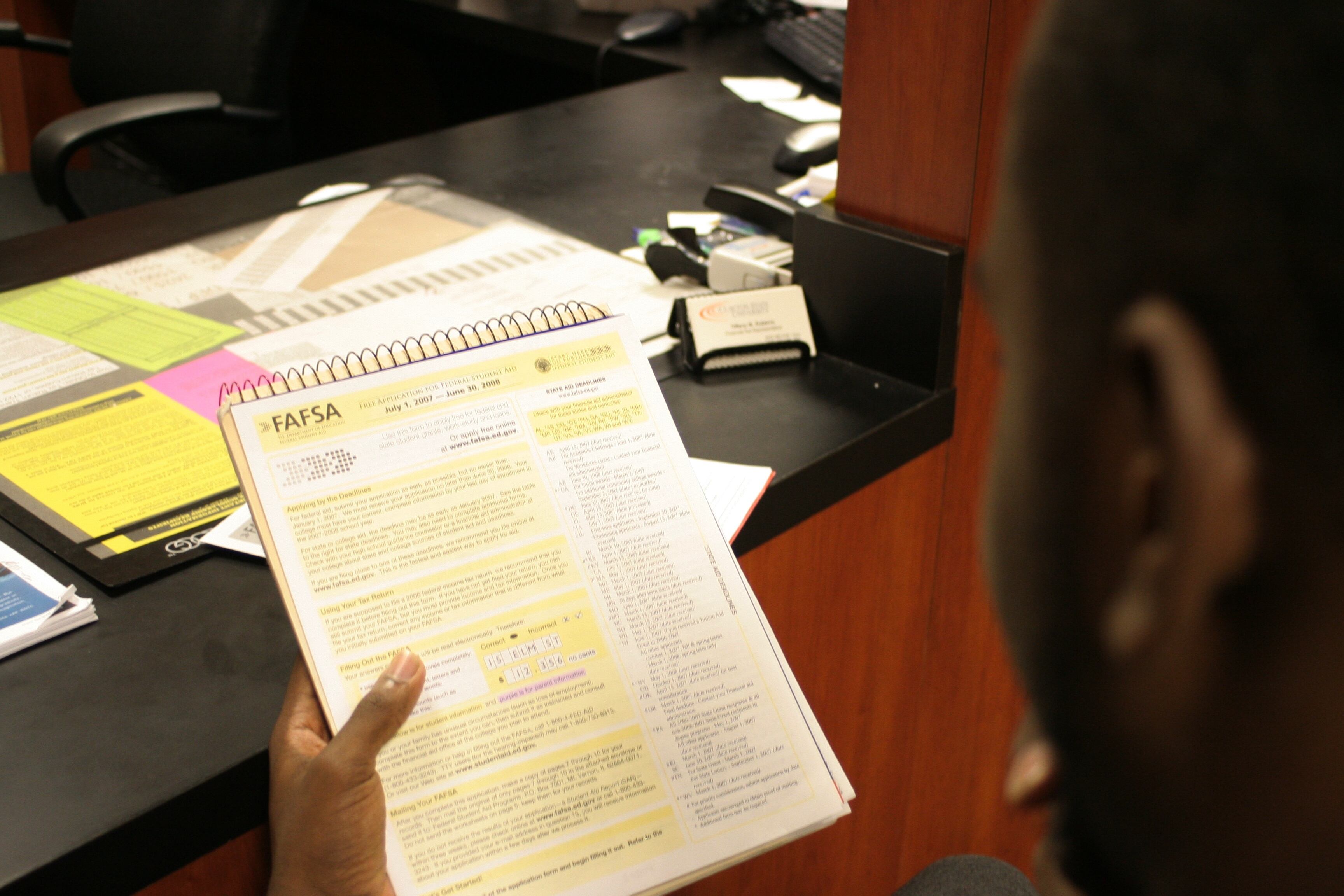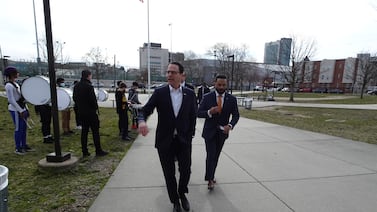In a bid to increase college enrollment, Newark will require students to apply for college financial aid before they can graduate high school.
The first of its kind in New Jersey, the new rule says that district students must complete a federal financial-aid application in order to earn a diploma. The policy, which the school board adopted Saturday, applies to this year’s seniors.
The requirement is based on data showing that students who fill out the Free Application for Federal Student Aid, or FAFSA, are far more likely to enroll in college. The FAFSA unlocks federal grants and loans, as well as some state aid and university scholarships, yet many high school seniors never submit the form. As a result, eligible students nationwide miss out on billions of dollars in federal aid.
While a few states require 12th graders to apply for federal aid before graduating, Newark appears to be the first New Jersey district to adopt such a policy. Last week, New Jersey lawmakers proposed a bill that would require all local school boards to add FAFSA completion to their graduation requirements.
Newark’s new policy will ensure that college-bound students don’t lose out on free money, said Superintendent Roger León. It may also sway some students to enroll in college after they receive financial aid offers.
“Kids are afraid about college — not because they don’t think they can do it,” but because they don’t think they can afford it, León told the school board. “So what we want to do is demystify that it’s a financial hardship.”
León introduced the mandatory FAFSA policy at Saturday’s meeting even though it was not on the agenda and board members said they had not seen it in writing. While the board approved the measure, members asked for more details. In particular, they wanted to know which students will be exempt and how schools will help students fill out the notoriously complex application.
“We don’t want this to prohibit our students from graduating,” said board member Hasani Council.
In 2019, about 60% of Newark seniors filled out the FAFSA, a rate on par with the national average but slightly below New Jersey’s 67% rate. This year, the coronavirus pandemic drove down FAFSA completion nationwide. In Newark, where a citywide coalition has been working to boost applications, the rate fell by 5.4%.
Three states require seniors to apply for federal financial aid in order to graduate, and about a dozen others are considering similar rules. Louisiana was the first state to adopt such a policy, which went into effect in 2018.
That year, the state’s FAFSA completion rate jumped by nearly 11 percentage points, according to a Century Foundation analysis. Louisiana now has the country’s second highest filing rate at nearly 74%. The policy also gave a boost to districts with many low-income students, bringing their completion rates in line with districts that enroll few poor students.
A mandatory FAFSA policy, “when well-implemented, carries real promise,” the Century Foundation report says.
Louisiana’s policy also has shortcomings. Many of the financial aid applications that students submit in order to graduate are not processed because of missing information, the report found. And Louisiana students appear more likely than students nationwide to file FAFSAs closer to graduation time, which might make them miss out on aid that’s distributed earlier in the year.
Mandatory FAFSA programs should feature several components, experts say. They should exempt students who can’t access their parents’ financial information and undocumented immigrants, who are not eligible for federal aid. And the programs must include extensive training on how to complete the application.
“The staff and the students are going to need a lot of support throughout the year to be able to meet the new graduation requirement,” said MorraLee Keller, director of technical assistance at the National College Attainment Network. She called Newark’s new policy “a good move for students” but cautioned, “It’s going to be a lot of work.”
In New Jersey, students must earn a certain number of credits and pass math and English tests to graduate. Newark students must meet additional requirements, including 80 hours of community service and a senior thesis. Beginning with the class of 2021, seniors now must also complete the FAFSA.
Even though the new policy went into effect immediately, the district still needs to work out key details, such as exemption qualifications.
Louisiana allows parents to opt their children out of the FAFSA requirement, and districts can grant waivers to students who can’t complete the application “due to extenuating circumstances.” But when questioned by board members Saturday, the only example León gave of an acceptable exemption is if a student’s parents are undocumented immigrants.
“Any time that a student is saying, ‘Completing this results in my parents being deported’ is a good exception,” he said. “A student saying, ‘I’m going to graduate from high school and go work at the corner bodega’ is not an exception.”
Board member Asia Norton expressed concern that the district could face a lawsuit if the new rule prevents students from graduating. And board member Council said it is imperative that the district educate families about the application process because the FAFSA asks for parents’ tax records.
León promised to offer training for school counselors and workshops for parents and students.
“Now we have to treat the financial aid form like a course,” he said. “Ultimately, it will change how we teach everyone.”







